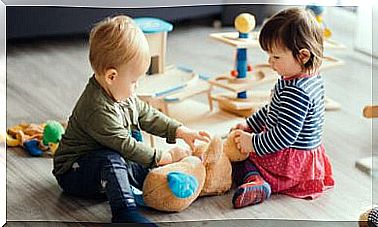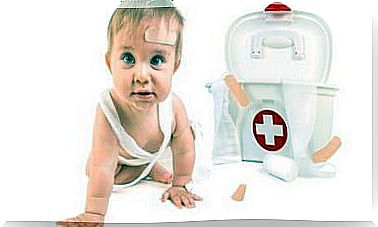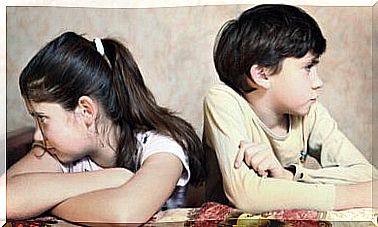Restrictive Parents, Rebellious Children

Our childhood and our relationship with our parents mark our personality for life. Despite believing that they are doing the right thing, overly restrictive parents can lead their children to rebellion.
Restrictive parents
There are various styles of parenting that vary in the degree of demand and affection. The authoritarian style that restrictive parents implement is characterized by high levels of demand, control and discipline, and a low presence of affection and emotional expression.
These parents use discipline, punishment, and threat as the usual method of education. They harshly sanction their children’s inappropriate behavior without giving an explanation for why. They are focused on extinguishing that incorrect behavior and believe that dialogue is not necessary; only obedience matters.
In addition, they usually impose their rules without room for discussion. They do not allow the expression of opinions of their children and are not open to negotiation. They repress and restrict the individual freedom of their infants, and detract from their interests and needs.
In the authoritarian parenting style, parents demand obedience and respect, they exercise excessive control, seeking to achieve good behavior in their children. However, without knowing it, they may be raising repressed young people who will see insubordination as the only way to respond.

Rebellious children
It has always been thought that it is permissiveness that leads to raising rebellious children. This is undoubtedly so. However, just as important, but less well known, is the influence of authoritarianism.
It is often believed that parents who educate with a firm hand get children of upright behavior. But commonly these children take two different but equally insane paths: some end up becoming timid and lacking self-esteem youth. Others find in rebellion the escape valve to defend themselves from this unjust situation.
Let us bear in mind that all human beings have the desire and the need to develop our individuality and express it. Everyone, from a young age, yearns to be heard and recognized by our elders, and we enjoy deciding little things like what to wear each day.
It is the duty of every parent to give their children a safe environment in which to discover and develop their personality. A place where you can bring out your own essence.
When parents are very restrictive, children find no place for their voice. These parents do not dialogue with their children, they do not listen to them or spend time getting to know them. They just want blind obedience.
This creates a family environment full of stress and lack of affection that leads to great unhappiness. And those children who have been silenced all their lives will struggle in adolescence to make themselves heard.
Adolescence
Adolescence is the quintessential stage of rebellion. All young people tend to defy authority and break rules. They do not do it to annoy their parents, they are simply individuals in construction looking for their identity.

In a family environment with healthy and affectionate bonds, the adolescent will go through these years without much difficulty, knowing that they are respected and supported by their parents. They will be able to negotiate, trust and respect the criteria of their parents.
On the other hand, restrictive parents have been generating a situation of injustice and imposition all their lives that breeds in their children an extreme need to vindicate themselves, to keep their integrity alive.
In adolescence, the insubordinate outburst of these young people, their firm opposition to their parents can bring serious problems. Some may turn to tobacco, alcohol, or drugs as a personal rebellion. Others may overindulge, get out of control, and be totally irresponsible and aggressive when their parents are not present.
Therefore, if we want to avoid this situation, we must strive to carry out parenting with clear and consistent limits, but in which affection and support also predominate. We must be able to listen, respect and give our children space to develop as independent beings.
Our goal must be that respect and obedience are produced out of conviction, because they have internalized values, and never out of fear of parents or punishment. A young man whose parents have found the balance between setting limits and letting him experiment will not feel the need to rebel in adolescence.










